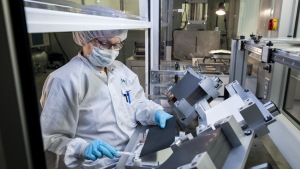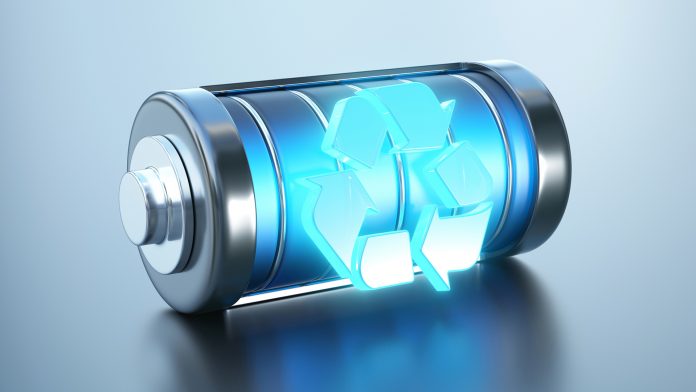The Karlsruhe Institute of Technology (KIT) is a significant player in the LiBinfinity project, a pioneering initiative aiming to establish a holistic concept for lithium battery recycling.
LiBinfinity will recycle materials from lithium-ion batteries using an advanced mechanico-hydrometallurgical process without energy-intensive steps that will be transferred from the lab to an industrial scale. KIT will then analyse if recycled materials can be utilised to produce new batteries.
The project received €17 million from the Federal Ministry for Economic Affairs and Climate Action (BMWK), with around €1.2m going to KIT.
LiBinfinity – optimising lithium battery recycling
Batteries are the vital technology required for the transition to electric mobility; however, with finite battery materials, effective recycling techniques will be essential to ensure long-term sustainability.
Batteries comprise critical resources such as lithium, cobalt, nickel, and manganese, with over 90% of the materials contained in lithium-ion batteries able to be recycled. The LiBinfinity project elevates reutilising materials to new heights, creating a holistic concept for lithium battery recycling.
Professor Helmut Ehrenberg, Head of KIT’s Institute for Applied Materials – Energy Storage Systems (IAM-ESS), explained: “When electrifying trucks, batteries will need so much material that recyclates will not suffice for other applications. Indeed, we will need a closed loop for the batteries proper. This means using the materials of spent batteries to produce new ones.”
LiBinfinity will collaborate with experts from research and industry to develop a lithium battery recycling system that will extend from logistics concepts to reusing recovered material in the life cycle of the battery.
The partners will design a mechanico-hydrometallurgical process without any energy-intensive steps to ensure optimal recycling rates. Additionally, using water and chemicals, battery materials that cannot be mechanically separated will be split at comparably low temperatures.

The role of KIT
Within LiBinfinity, KIT will assess if the recycled or recovered materials are suitable to be used in the manufacture of new batteries.
Dr Joachim Binder, Head of the Synthesis and Ceramic Powder Technology Group of IAM-ESS, said: “Such validation is vital, as materials for batteries must meet high requirements. This especially applies to cathode materials, as they largely determine the efficiency, reliability, lifetime, and cost of batteries.”
KIT will be responsible for the entry control of recycled materials, synthesis of new cathode materials, electrode production, manufacture of large-format lithium-ion battery cells of industry quality, cell tests, and evaluation of the battery cells. These parameters will define whether recycled materials can be used to develop new lithium-ion batteries.
The LiBinfinity lithium battery recycling concept will not only advance the ecological, economic, and social sustainability of electric mobility but mitigate Europe’s dependence on importing raw battery materials.







